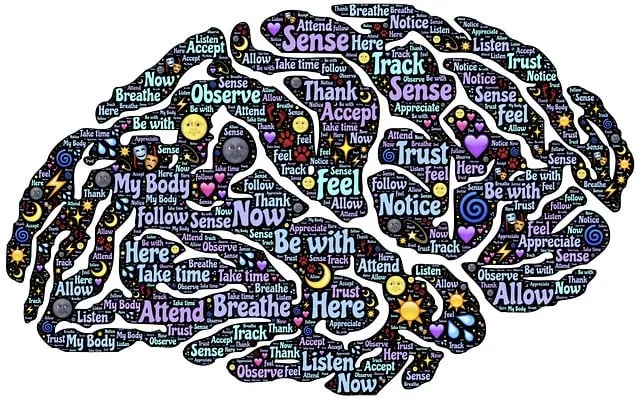The Centennial Kaiser Permanente mental health department offers 24/7 crisis intervention and support via their hotline, utilizing evidence-based practices like cognitive-behavioral therapy and trauma-informed care. They provide tailored services from urgent care to long-term stress reduction strategies, empowering individuals with tools to manage challenges and foster community resilience. Their holistic approach combines risk management planning, empathy building, self-esteem enhancement, and proactive programs like Stress Management and Depression Prevention to promote mental wellness.
“In the realm of healthcare, crisis intervention plays a pivotal role in supporting individuals during times of severe distress. This article explores essential strategies and best practices, particularly focusing on the renowned Centennial Kaiser Permanente mental health department’s approach. With a comprehensive guide, we delve into effective crisis intervention techniques that have proven successful within the Kaiser model. By examining their strategies, we aim to enhance understanding and potentially save lives, especially considering the significant impact of such interventions at Centennial Kaiser Permanente, serving a large number of patients.”
- Understanding Crisis Intervention: A Brief Overview
- The Role of the Mental Health Department at Kaiser Permanente
- Strategies for Effective Crisis Intervention
- Best Practices and Future Directions for Centennial Kaiser Permanente
Understanding Crisis Intervention: A Brief Overview

Crisis intervention is a critical component of mental health support, designed to provide immediate assistance and stabilization during moments of severe distress or danger. It involves a range of strategies and techniques aimed at helping individuals cope with traumatic events, acute stress, or intense emotional crises. The Centennial Kaiser Permanente mental health department has pioneered effective crisis intervention guidance, offering resources and training to professionals and community members alike.
The primary goal is to ensure the safety and well-being of the person in crisis, prevent harm, and facilitate a return to a state of stability and balance. This often includes assessment, active listening, emotional support, and skill-building techniques to enhance mental wellness and promote resilience. By integrating evidence-based practices and tailored interventions, such as cognitive-behavioral strategies, crisis counseling models, and trauma-informed care, the department equips individuals with effective tools for managing future challenges. Mental health education programs design plays a pivotal role in this process by raising awareness about emotional well-being promotion techniques, fostering a culture of support, and encouraging proactive help-seeking behaviors within communities.
The Role of the Mental Health Department at Kaiser Permanente

The Mental Health Department at Kaiser Permanente plays a pivotal role in crisis intervention and mental wellness support for its members. With a dedicated team of professionals, this department offers a comprehensive range of services tailored to address various psychological challenges. They are equipped to handle urgent situations, providing immediate assistance through their 24/7 hotline, ensuring swift crisis intervention across all Centennial Kaiser Permanente locations.
Their expertise extends beyond acute care, encompassing long-term strategies for stress reduction and anxiety relief. The department facilitates Mental Wellness Coaching Programs Development, empowering individuals with coping mechanisms and tools to manage chronic conditions. By integrating evidence-based practices, they contribute significantly to the overall well-being of the community, aiming to reduce the impact of mental health crises and foster a culture of resilience and emotional balance.
Strategies for Effective Crisis Intervention

In crisis intervention, the role of mental health professionals is paramount. At Centennial Kaiser Permanente’s mental health department, strategies for effective intervention are both nuanced and impactful. One cornerstone approach involves Risk Management Planning, which includes assessing potential hazards, developing safety protocols, and implementing de-escalation techniques tailored to each individual’s needs. This proactive mindset not only ensures the immediate safety of those in crisis but also fosters a supportive environment conducive to long-term healing.
Empathy building strategies are another key component. By cultivating genuine understanding and compassion, mental health professionals can establish trust and facilitate open communication. Encouraging self-expression, actively listening, and validating emotions can significantly enhance individuals’ sense of self-worth, culminating in improved self-esteem. This holistic approach combines risk management with empathetic care to provide comprehensive support during and after crises, ultimately promoting resilience and well-being.
Best Practices and Future Directions for Centennial Kaiser Permanente

Centennial Kaiser Permanente’s mental health department plays a pivotal role in crisis intervention and has made significant strides in best practices over recent years. One key strategy is integrating evidence-based approaches like Stress Management techniques, which have shown promise in early trials among their patient population. By promoting Stress Management, the department aims to equip individuals with tools to handle adverse situations before they escalate into full-blown crises.
Looking ahead, the mental health team at Centennial Kaiser Permanente can explore innovative future directions. Implementing programs focused on Depression Prevention, for instance, could be a game-changer. Incorporating Mindfulness Meditation sessions as part of these initiatives has the potential to enhance overall well-being and resilience among patients, especially in today’s fast-paced world where hustle and bustle often contributes to mental health challenges. Such proactive measures could significantly reduce the number of crises requiring intensive intervention.
Crisis intervention strategies are vital for organizations like Centennial Kaiser Permanente’s mental health department, which plays a crucial role in supporting individuals during distressing times. By implementing effective practices, as outlined in this article, the department can enhance its capabilities to navigate and mitigate crises. The strategies discussed, paired with ongoing research and adaptation, will ensure that the mental health team at Kaiser Permanente remains prepared to assist a significant number of patients, fostering better outcomes and resilience within the community they serve.






